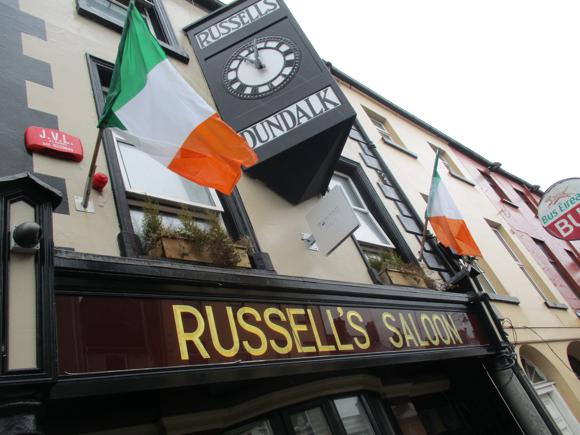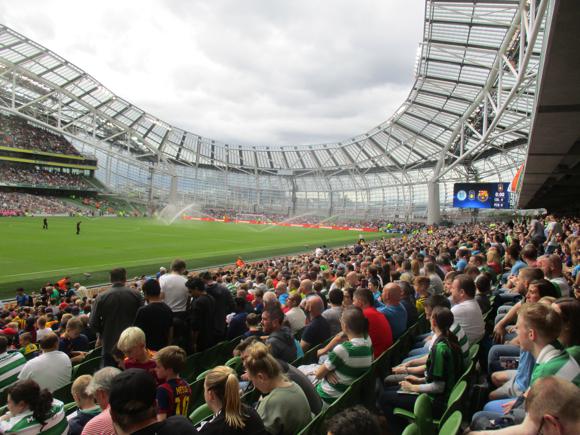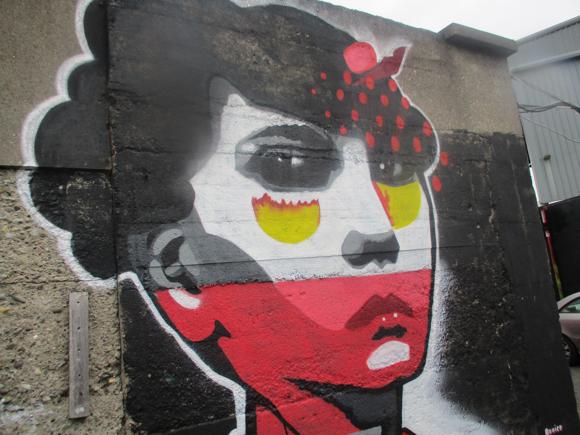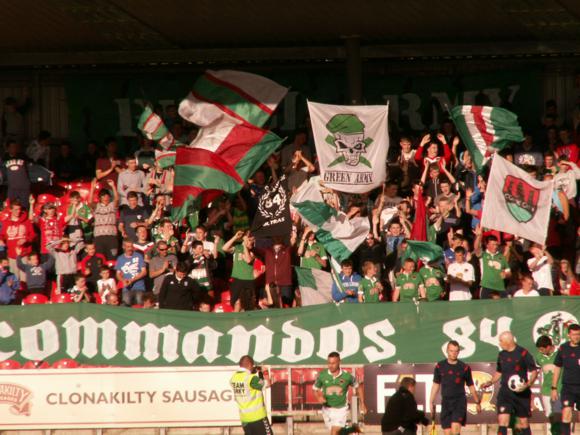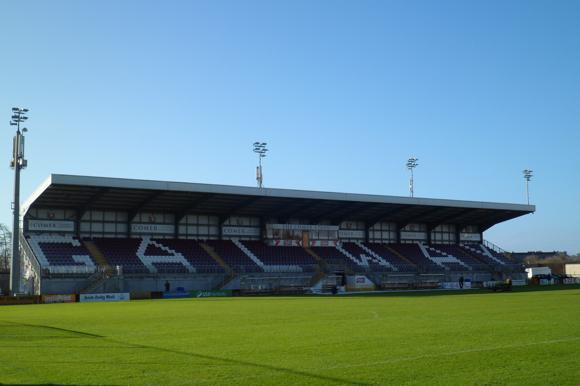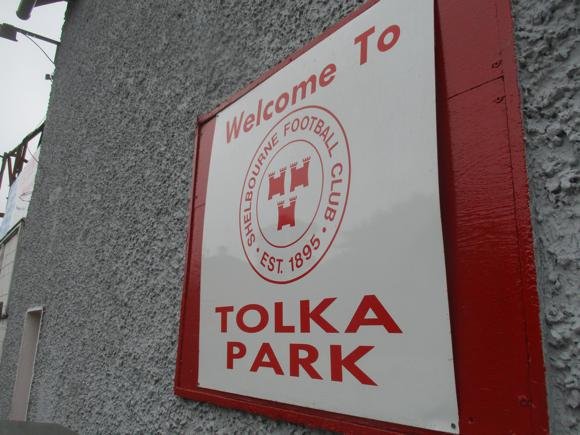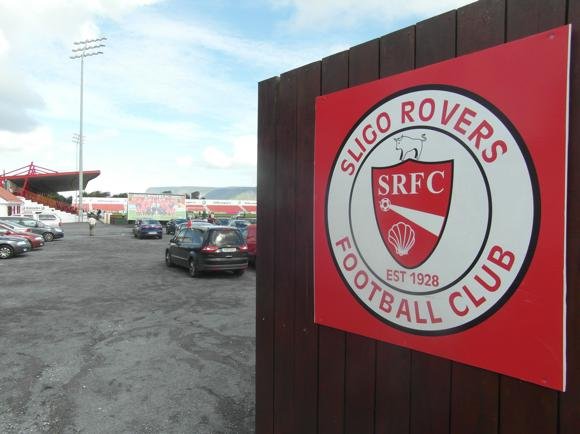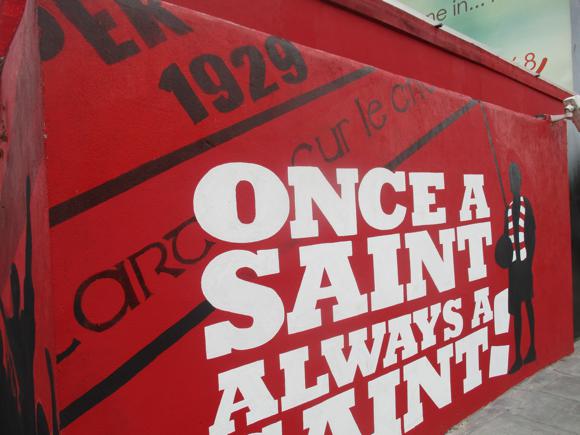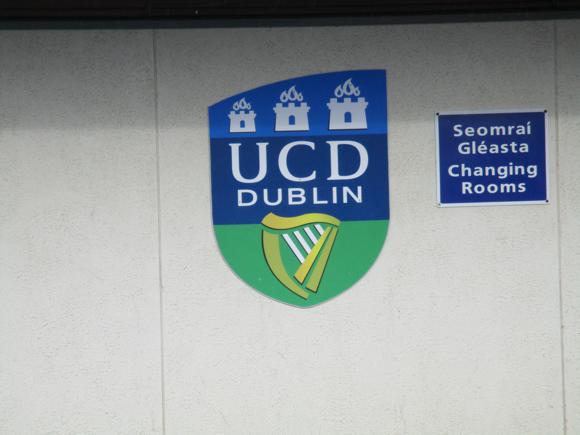A fan’s guide – the club from early doors to today
Dundalk FC have boldly gone where no other Irish team has gone before. Astonishing results in both European competitions in 2016 took the Irish champions to within touching distance of a potential Champions League match-up with Barcelona, Real Madrid or Juventus. The subsequent win and draw in the group stage of the Europa League represent unprecedented achievements for any League of Ireland club.
While ambitious young manager Stephen Kenny surpassed his feats with Derry in Europe a decade ago, his Lilywhites evoked memories of the club’s epic battles in the late 1970s and early 1980s against Celtic, Tottenham and Porto.
Three days after taking four-time Russian champions Zenit St Petersburg to the wire in the Europa League, Dundalk sealed a third consecutive Irish title.
While staging major European fixtures in Dublin – a crowd of 30,000 witnessed the 2016 Champions League play-off with Legia Warsaw at the Aviva – Dundalk still consider their revered ground of Oriel Park as the Home of Football.

Formed as Dundalk GNR in 1903, the then black-and-ambers joined the newly formed Leinster Senior Division in 1922, becoming full members of the League of Ireland four years later.
In 1927 they changed to white shirts and became Dundalk FC in 1930. That same season, they finished runners-up to Shelbourne in the Dublin-dominated league, a mean defensive record allowing them to go one better and win the title in 1932-33.
Dundalk then dipped out of the limelight until the 1960s, when 100-plus goals from remarkable, one-armed centre-forward Jimmy Hasty helped the Lillywhites regain the league trophy and enter the European fray. Always seen in team photos standing next to the goalkeeper to hide his disability, Hasty had lost his arm in an accident at work and had learned to readjust his balance.

In 1963, he scored the winning goal at the Letzigrund in Zürich to beat FCZ in the preliminary round of the European Cup, although it wasn’t enough to see Dundalk through at their first attempt. A decade later, the heroic Hasty was gunned down while walking to work in Belfast one morning, as the Troubles played an ever more grim role in the domestic game.
Back in ’63, such was the interest for the FCZ match that 17,000 gathered at Dublin’s Dalymount Park for the home leg. Gradually, as Dundalk qualified for more European competition, their own Oriel Park became the setting for tense tussles against famous names. Neither Tottenham, Porto, Celtic or PSV Eindhoven could claim more than a point after their visits to Dundalk – Hajduk Split, a decent side then, even lost 1-0.
Dundalk’s location near the border between Northern Ireland and the Republic did it few favours during the Troubles – a European game with Belfast’s Linfield had to be moved to Haarlem in Holland. Local industry declined and money was in short supply.

Through all this, Dundalk nipped in to win the title in 1988 and 1991 – although Ajax and Red Star Belgrade were easy winners at Oriel Park. By the mid-1990s, it was clear that Dundalk’s venerable old ground, their home since 1936, was in no state to accommodate European football. A 1995 UEFA Cup tie with Malmö was played in nearby Drogheda, Dundalk’s biggest local rivals.
As the local economy picked up, Dundalk set about a major revamp of Oriel Park in 2005, installing an all-weather pitch. The fans only saw results on it after the arrival of Stephen Kenny as manager in 2012.
Gaining a runners-up spot in 2013, the Lilywhites went one better by winning a historic tenth league title in 2014 thanks to a winner-takes-all title decider at a packed Oriel Park against Cork City. The match was also a personal triumph for experienced midfielder Stephen O’Donnell, who had come back from serious injury to score the opening goal in the 2-0 victory.

Youngster Richie Towell, Kenny’s first signing, had also made a significant difference to Dundalk’s fortunes. From midfield, Towell then dominated the 2015 season, scoring twice as many as any other player in the league as Dundalk swept to a rare double.
A solid back four of Sean Gannon, Brian Gartland, Andy Boyle and Dane Massey kept defeats down to a single digit, as did Drogheda-born goalkeeper Gary Rogers, another Kenny wise buy.
With Towell sold to Brighton, Kenny upset many pre-season predictions by taking Dundalk to unprecedented heights in Europe, picking up a third straight league title on the way.
The European adventure began with two quick away goals in succession by David McMillan at Hafnarfjördur, some 10km outside Reykjavík. Dundalk then went to Borisov, where Champions League veterans BATE gained a narrow 1-0 win in the next round. Expecting to progress as usual, the Belarus champions of the previous ten seasons were battered at Tallaght Stadium by Dundalk, whose 3-0 victory must rank as one of the greatest performances by an Irish club in Europe. Again, McMillan notched two.

Now one tie away from the Champions League group stage, Dundalk switched the home leg against Legia Warsaw to the Aviva. Matching the Polish champions in the first half, Kenny’s side fell behind to a penalty from prolific Hungarian international Nemanja Nikolić. An early yellow card given to captain Stephen O’Donnell proved crucial as Legia attacked with impunity, nabbing a vital second away goal in stoppage time.
Though a rocket volley from Robbie Benson put Legia on the back foot in Warsaw, the Poles scraped through to the group stage, Dundalk missing O’Donnell through suspension.
The Europa League group stage was no less dramatic. Trailing AZ in the first game in Alkmaar, Dundalk grabbed a late headed equaliser through Ciarán Kilduff, whose career had been in jeopardy following a spinal injury a few months before. Kilduff went one better by scoring the winner in Dundalk’s first home game of the group, against Maccabi Tel-Aviv.

The Lilywhites had not only matched Shamrock Rovers by reaching the group stage of the Europa League – they had first gained a point, and now gained a win.
Benson then put Dundalk in dreamland by opening the scoring at home to Zenit, before the Russians struck two back – as they would do in St Petersburg. Narrow defeats to AZ and Maccabi then provided a frustrating end to a memorable campaign.
On the plus side, Kenny’s men secured a third consecutive league crown with a 2-1 win over Bohemians, although runners-up Cork City gained revenge when Dundalk old boy Sean Maguire hit a 120th-minute goal to win the FAI Cup at the Aviva.



ground Guide
The field of dreams – and the stands around it



Dundalk’s home for 80 years, Oriel Park, ‘The Home of Football’, has seen crowds of around 20,000 in the days of packed terraces and great European nights.
Since the much-needed 2005 revamp, capacity has been 4,500, 3,000 seated in the stands facing each other across a FieldTurf artificial pitch. The Main Stand is nearest Carrickmacross Road with turnstiles for home and away fans, visiting supporters accessing standing and seating places through the gate furthest from the train station.
The South Side, aka The Shed, has also covered seating, Oriel Park now meeting UEFA requirements for an overall 3,000 within any given ground.
There are also standing places at each end.
getting there
Going to the ground – tips and timings

Oriel Park is less than ten minutes from Dundalk (Clarke) train station – turn right up to towards Kennedy’s and the main road, where you turn right again. The stadium is on the same side of the road as the pub, just past the petrol station. You’ll see the old-school floodlights from the train window as you come in, an hour from Dublin Connolly.
Those arriving by bus to the Long Walk should head towards Market Square, then head right past the pubs of Park Street and Anne Street, then towards the train station from the roundabout.
getting in
Buying tickets – when, where, how and how much

Cash-only tickets are available on the day at the turnstiles on Carrickmacross Road, €20 (€15 concessions) for the Main Stand, €15 (€5-€10) elsewhere.
Although there are no online sales, advance purchase is usually available in the week running up to match day.
what to buy
Shirts, kits, merchandise and gifts

A merchandise outlet opens on match days below the town end of the Main Stand, with items such as Jim Murphy’s recently published Dundalk miscellany C’Mon the Town and a DVD of the double-winning season of 2015 among the replica shirts, scarves and hats.
Where to Drink
Pre-match beers for fans and casual visitors


Kennedy’s, aka the Railway Bar, has been in place for generations. Set at the junction of station walkway and Carrickmacross Road, it has been overhauled and modernised by the current management, and is now a comfortable and spacious place to watch the game on the big screen, warm yourself by one of two fires and tuck into a home-made meal – Dundalk manager Stephen Kenny is a regular diner.
A single line-up photo of his team is posted by the bar, lined with taps of Peroni, Carlsberg and Hop House 13 lager from the Guinness stable. Old photos of Dundalk do the rest of the decorative duty while a beer garden opens in summer.
At the ground, the Lilywhite Lounge under the Main Stand and Enda McGuill Suite open on match days and for special occasions. Drinks are also served at the Town Bar outlet by the merchandise shop at the station end of the Main Stand.


